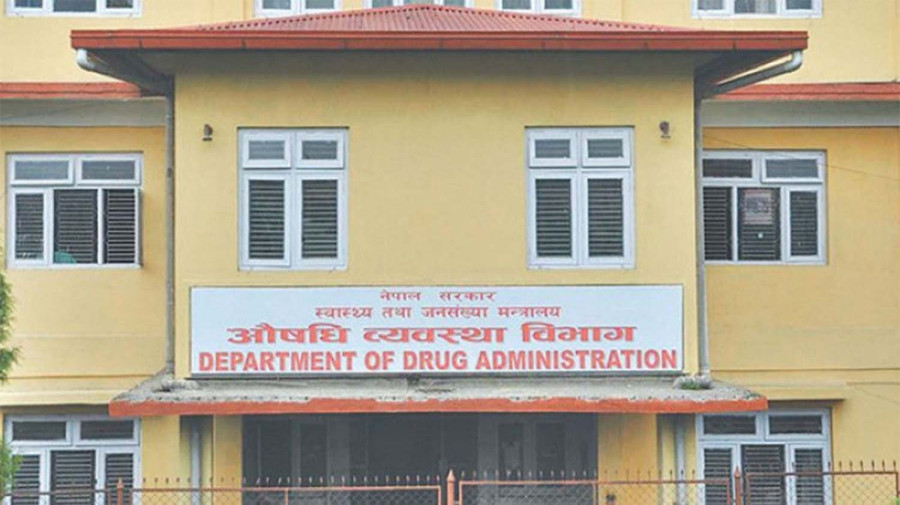National
Nepal drug regulator tells pharmacies to stop selling illegal food supplements and cosmetics
Threatens action for noncompliance, saying these products are costly, prescribed without assessing the need, and may cause more harm than good.
Post Report
The Department of Drug Administration has warned pharmacies against selling unregistered food supplements, nutraceuticals and cosmetics containing pharmaceutical ingredients, stating that such products may do more harm than good.
In a statement on Thursday, the national drug regulatory body said that its drug inspectors, during market inspections, found unregistered and banned food supplements, nutraceuticals and beauty ointments being prescribed by doctors and sold in pharmacies.
“Drug inspectors have found unregistered dietary supplements and nutraceuticals in tablet, capsule, and liquid forms; and beauty ointments containing pharmaceutical ingredients being sold from wholesale and retail pharmacies,” the department stated. “Unregistered and banned medicines adversely affect public health.”
The department warned traders that unregistered products would be confiscated, and legal action taken if they ignored the warning.
It is estimated that around two-thirds of doctors in Nepal prescribe more medications than patients actually need. The proportion of nutraceuticals—pharmaceutical alternatives claiming physiological benefits—far exceeds that of actual medicines bought, and patients are not being counselled on why they should take vitamin supplements.
Some doctors and dispensaries have been taking undue advantage of poor patients by forcing them to buy additional vitamin supplements. Most patients are unaware and do not question whether the supplements are really necessary. Doctors are suspected of receiving kickbacks from companies for prescribing these costly products.
Medical experts say that supplementary vitamins are only needed in specific conditions, but many doctors continue to prescribe unnecessary drugs to their patients.
Patients across the country are often handed long prescriptions for vitamin supplements, while experts around the world still debate whether such supplements are helpful or merely a market hype. Some doctors prescribe vitamins even when the cause of ailments has not been established.
Patients also complain that they are forced to buy vitamin supplements that are often more expensive than regular medicines.
A false impression has been created that doctors prescribing unnecessary nutraceuticals are more experienced and knowledgeable. When doctors prescribe these products, patients are compelled to buy them without understanding their necessity.
Meanwhile, the issue of heavy metal poisoning from various sources, including dietary foods, health supplements, and some Ayurvedic medicines, has emerged as a serious public health problem in Nepal.
Though no scientific study has yet been conducted, doctors say patients often complain of severe abdominal pain, dehydration, diarrhoea, weakness, nausea, vomiting, and numbness in hands and feet, which could be due to heavy metal poisoning.
Doctors say high lead levels can cause anaemia, weakness, and damage to kidneys and brain. Mercury exposure may harm the lungs, brain and kidneys, while long-term exposure to arsenic is linked to skin disorders and increased risk of skin, bladder, and lung cancer. Prolonged exposure to cadmium can lead to kidney disease and weakened bones.
Experts say people using dietary supplements for weight loss and those using Ayurvedic medicine to manage blood sugar and blood pressure are at risk of heavy metal poisoning from lead, arsenic, mercury and cadmium.
Research has found high levels of heavy metals, including lead, mercury, and arsenic, among others, in certain dietary supplements and traditional remedies.
A study carried out in 2020 by the Department of Ayurveda and Alternative Medicine under the Ministry of Health and Population found toxic metals like arsenic, cadmium, lead, and mercury in three medicinal plants used in Ayurvedic treatments for common ailments.




 13.12°C Kathmandu
13.12°C Kathmandu













